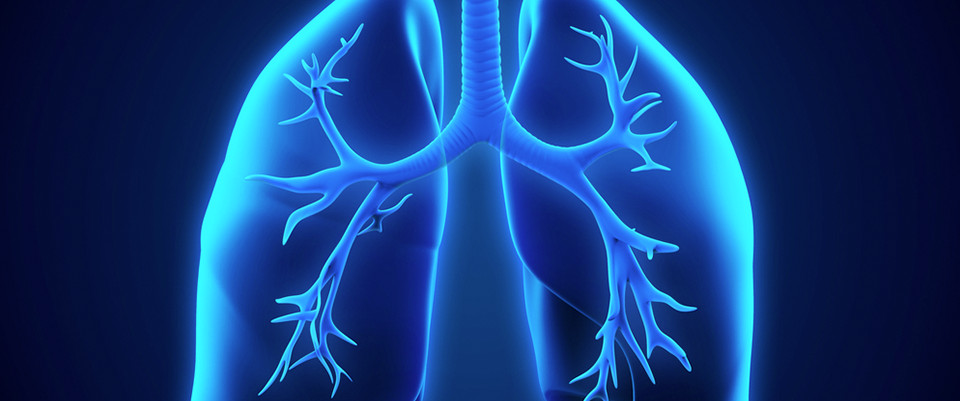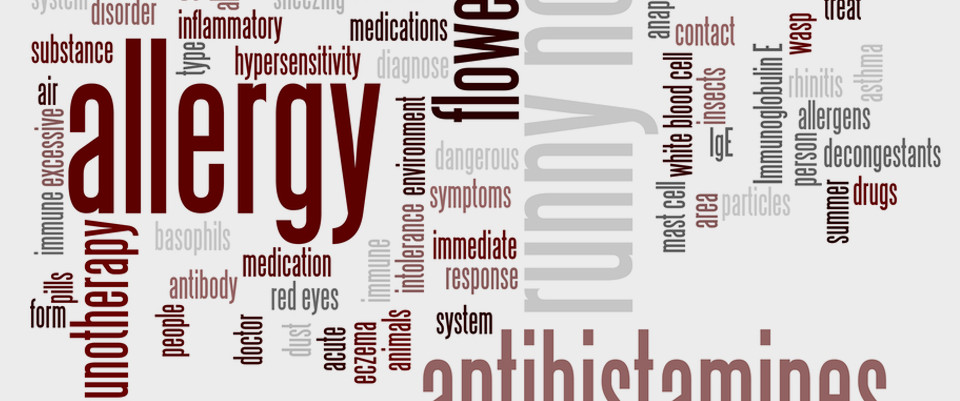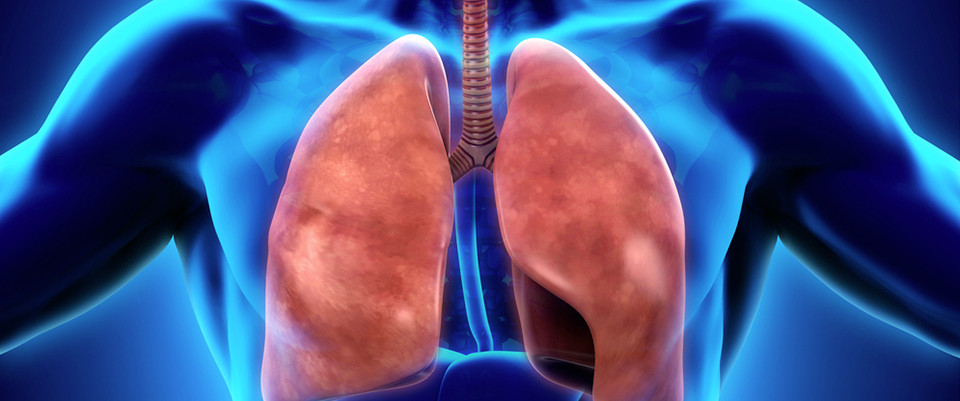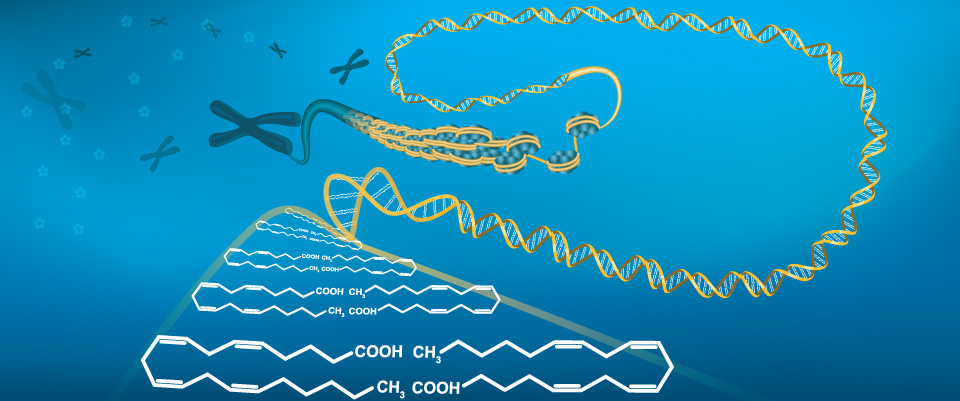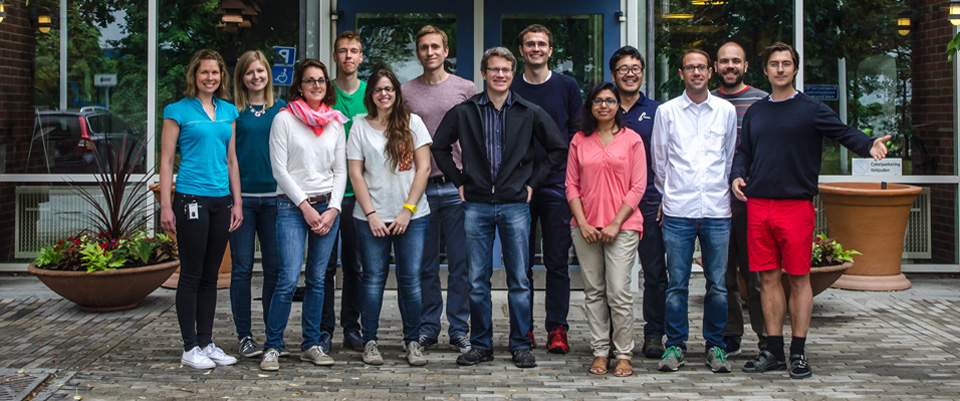KI News
Five KI researchers among the most cited in the world
Five KI researchers are listed at the 2016 list of "Highly Cited Researchers". In total 3,000 scientists worldwide are listed as the most cited, and in that aspect also the most influential, within 21 subject areas.
The list is put together by Clarivate Analytics, and is based on information from the Web of Science of the most cited top publications during 2004-2014. The data consists of 128,887 scientific articles.
– I see this list as one of several indications that KI’s researchers are producing good and relevant research, says Anders Gustafsson, Dean for research at KI.
The five researchers at KI qualified for the list:
Bengt Winblad, Department of Neurobiology, Care Sciences and Society
Dag Aarsland, Department of Neurobiology, Care Sciences and Society
Jan-Åke Gustafsson, Department of Biosciences and Nutrition, Category
Magnus Ingelman-Sundberg, Department of Physiology and Pharmacology
Ronald van Vollenhoven, Department of Medicine, Solna
Out of the other medical faculties in Sweden KI, Uppsala University had four researchers on the list and Lund University had two.
Read more about the list and the method behind it on hcr.stateofinnovation.com
KI professor shares award with historical celebrities
Per-Olof Berggren, professor of experimental endocrinology at KI, has been elected member of the American Academy of Arts & Science. He share this distinguished award with historical celebrities, such as Albert Einstein, Winston Churchill and Nelson Mandela.
Professor Per-Olof Berggren is a Principal Investigator at the Department of Molecular Medicine and Surgery at KI. He will receive his formal introduction to the academy in October in Cambridge, Massachusetts, USA.
The American Academy of Arts & Science was founded in 1780 to cultivate art, science and education. Today, the organisation has over 5,000 members worldwide, and convenes leaders from the academic, business, and government sectors to address critical challenges facing our global society.
(This article has been updated and corrected.)
Some celebrity members of the American Academy of Arts & Science:
Benjamin Franklin, Thomas Jefferson, George Washington, Alexander Graham Bell, Margaret Mead, John F. Kennedy, Martin Luther King Jr, Charles Darwin, Albert Einstein, Winston Churchill, Laurence Olivier, Akira Kurosawa, Mary Leakey and Nelson Mandela.
Oral contraceptives reduce general well-being in healthy women
One of the most common combined oral contraceptive pills has a negative impact on women’s quality of life but does not increase depressive symptoms. This is shown by a major randomised, placebo-controlled study conducted by researchers at Karolinska Institutet in Sweden in collaboration with the Stockholm School of Economics. The results have been published in the scientific journal Fertility and Sterility.
“Despite the fact that an estimated 100 million women around the world use contraceptive pills we know surprisingly little today about the pill’s effect on women’s health. The scientific base is very limited as regards the contraceptive pill’s effect on quality of life and depression and there is a great need for randomised studies where it is compared with placebos,” says professor Angelica Lindén Hirschberg at the Department of Women's and Children's Health at Karolinska Institutet.
She has led just such a study together with Niklas Zethraeus, associate professor at the Department of Learning, Informatics, Management and Ethics, Anna Dreber Almenberg from the Stockholm School of Economics, and Eva Ranehill of the University of Zürich. 340 healthy women aged between 18 and 35 were treated randomly over the course of three months with either pills with no effect (placebos) or contraceptive pills containing ethinylestradiol and levonorgestrel, the most common form of combined contraceptive pill in Sweden and many other countries. Neither the leaders of the experiment nor the subjects knew which treatment was given to which women.
The women who were given contraceptive pills estimated their quality of life to be significantly lower than those who were given placebos. Both general quality of life and specific aspects like mood/well-being, self-control and energy level were affected negatively by the contraceptives. On the other hand, no significant increase in depressive symptoms was observed.
May be of clinical importance
Since the changes were relatively small, the results must be interpreted with a certain amount of caution, the researchers emphasise. In the case of individual women, however, the negative effect on quality of life may be of clinical importance.
“This might in some cases be a contributing cause of low compliance and irregular use of contraceptive pills. This possible degradation of quality of life should be paid attention to and taken into account in conjunction with prescribing of contraceptive pills and when choosing a method of contraception,” says Niklas Zethraeus.
The type of combined contraceptive pill that was used in the study (etinylestradiol + levonorgestrel) is recommended in many countries as the first choice since it is considered to entail the least risk of thrombosis among the combined contraceptive pills. The findings from the study cannot be generalised to other kinds of combined contraceptive pills because they may have a different risk profile and side-effects.
The study was supported by research grants from Jan Wallander and Tom Hedelius Foundation, Knut and Alice Wallenberg Foundation, Swedish Council for Working Life and Social Research, the Swiss National Science Foundation, the Swedish Research Council, Karolinska Institutet, and the regional agreement on medical training and clinical research (ALF) between Stockholm County Council and Karolinska Institutet.
Publication
Niklas Zethraeus, Anna Dreber, Eva Ranehill, Liselott Blomberg, Fernand Labrie, Bo von Schoultz, Magnus Johannesson, Angelica Lindén Hirschberg
A first choice combined oral contraceptive influences general well-being in healthy women - a double-blind, randomized, placebo-controlled trial
Fertility and Sterility, online 18 April 2017, doi:10.1016/j.fertnstert.2017.02.120
Joining forces for science and facts
Hello there, Cissi Askwall, Secretary General of Vetenskap & Allmänhet (Public & Science), which is coordinating March for Science on 22 April. Some thirty organisations, one of them Karolinska Institutet, are supporting March for Science in Sweden. But what is the manifestation really all about?
“It’s a manifestation for science and for facts. It’s important to remember that it’s not a demonstration against certain political leaders and so-called alternative facts,” Cissi Askwall says.
The goal of March for Science is to show the importance of openness in research, critical thinking, a scientific approach and evaluation of sources. But also the importance of dialogue around research, and how it can be used, and that politicians should have access to and use evidence-based science.
“Here in Sweden the march will be held in Stockholm, Gothenburg, Uppsala and Umeå, and worldwide in a total of about 500 cities.
Students at Karolinska Institutet did not hesitate to latch on the global initiative.
“They’ve been driving forces in our group from the outset and it’s also extremely gratifying that KI is supporting March for Science,” Cissi Askwall goes on.
What route will the march take in Stockholm?
“We’ll start from Mariatorget at noon on the day and then proceed to Medborgarplatsen, where representatives of science will make speeches. We’ll also have entertainers and opinion formers on the stage.
Anyone wishing to register can find the event on Facebook March for Science, Stockholm.
Conversion of brain cells offers hope for Parkinson’s patients
Researchers at Karolinska Institutet have made significant progress in the search for new treatments for Parkinson’s disease. By manipulating the gene expression of non-neuronal cells in the brain, they were able to produce new dopamine neurons. The study, performed on mice and human cells, is published in the prestigious scientific journal Nature Biotechnology.
By reprogramming cells in the brain the scientists were able to revert motor symptoms in a mouse model of Parkinson’s disease and reproduce the cellular function and responses in human brain cells in the laboratory. The key to this discovery lies in the conversion of brain cells into a subset of nerve cells called dopamine neurons.
Dopamine neurons degenerate and die in the brains of people suffering from Parkinson’s disease. The research team showed that they can convert non-neuronal so called glial cells in the brains of mice into new dopamine neurons, in essence, creating new neurons.
The glial cells used in the study were astrocytes, named for their star-shape, which are highly abundant in the brains of mice and humans. Using a variety of different transcription factors – proteins that can alter the gene expression – the researchers changed astrocytes in a mouse model of Parkinson’s disease into functioning dopamine neurons. This resulted in measurable markers of dopamine signaling in the mouse brain as well as a significant reduction in the symptoms of the disease.
The team also performed experiments on human astrocytes in the laboratory which they were able to convert into functional dopamine neurons, raising the possibility for treatment of patients suffering from Parkinson’s disease.
An alternative to cell therapy
Cell replacement therapies for neurodegenerative disease have focused on transplantation of the cell types affected by the pathological process.
“We think that in the future, it may be possible to deliver genes and small molecules, rather than cells, to replace the dopamine neurons lost in Parkinson’s disease” says Professor Ernest Arenas at Karolinska Institutet’s Department of medical biochemistry and biophysics.
He has conducted the study in close collaboration with Pia Rivetti at the same department and Professors Gilberto Fisone and Tibor Harkany at Karolinska Institutet’s Department of neuroscience, among others.
The study was supported by grants from the Swedish Research Council, Swedish Foundation for Strategic Research, EU, StratRegen, Hjärnfonden, Cancerfonden, StratNeuro, Parkinsonfonden, Novo Nordisk Foundation, the European Research Council and EMBO, among others.
Publication
'Induction of functional dopamine neurons from human astrocytes in vitro and mouse astrocytes in a Parkinson’s disease model'
Pia Rivetti di Val Cervo, Roman A Romanov, Giada Spigolon, Débora Masini, Elisa Martín-Montañez, Enrique M Toledo, Gioele La Manno, Michael Feyder, Christian Pifl, Yi-Han Ng, Sara Padrell Sánchez, Sten Linnarsson, Marius Wernig, Tibor Harkany, Gilberto Fisone & Ernest Arenas
Nature Biotechnology, online 10 April 2017, doi: 10.1038/nbt.3835
Karolinska Institutet flags at half mast to honour victims of attack
Saturday 8 April the Swedish flag will fly at half mast at Karolinska Institutet, in honour of those killed and wounded in the attack at Drottninggatan, Stockholm, Sweden yesterday.
Government Offices and others flags at half mast.
Karolinska Institutet in EU initiative for vascular diseases
The first of March 2017 marked the start of INTRICARE, an international EU-financed consortium in which 15 doctoral projects at three European universities have been earmarked for research to find new treatments for vascular diseases. Karolinska Institutet is the host of four of the projects.
The doctoral projects are so-called European Joint Doctorates (EJDs), whereby the students are educated at two universities. This is the first time that Karolinska Institutet has received EU funding for this type of project. The consortium is financed with a grant from Marie Sklodowska-Curie Actions (MSCA) and is coordinated by CARIM Maastricht University in the Netherlands. Universitätsklinikum Aachen in Germany is the third participating university.
An exciting journey for the students
“I think it’s good for Karolinska Institutet to be on board,” says Johan Frostegård, professor at Karolinska Institutet’s Institute of Environmental Medicine and supervisor of one of the projects. “It’s something of a mark of quality. Above all, it’ll be an exciting journey for the students.”
The other three projects are supervised by professors Magnus Bäck (Department of Medicine, Solna), Ulf Hedin (Department of Molecular Medicine and Surgery) and Peter Stenvinkel (Department of Clinical Science, Intervention and Technology). Previous collaborations with Maastricht University and Universitätsklinikum Aachen paved the way for Karolinska Institutet’s participation.
“Some groups at Karolinska Institutet have collaborated with researchers at Maastricht and Aachen on previous projects, including on vascular calcification, vitamin K and premature vascular ageing,” says Professor Stenvinkel. “This is why Karolinska Institutet is involved in this project.”
Different approaches to find new therapies
Peter Stenvinkel's project will look into why the vessels in patients with advanced kidney failure age so quickly. Johan Frostegård’s project will study how specific fats can be used immunologically to develop vaccines against vascular calcification; Magnus Bäck’s project will examine how inflammation makes vesicular calcification instable and how it can be treated; and Ulf Hedin’s project will focus on which genes can contribute to the calcification of the vesicular wall musculature.
“We hope, of course, that these projects will eventually give rise to new therapeutic methods to target vascular disease in an ever-ageing European population,” says Professor Stenvinkel. “This opportunity to combine studies of European patient groups while having access to the fantastic infrastructure and methods that exist in Maastricht and Aachen means that this research consortium.can excel vascular research at Karolinska Institutet”
Doctoral students are currently being recruited to the projects, which will run for four years.
Text: Mårten Göthlin
Government re-appoints four members of the KI board
The government has today decided to re-appoint four members of the KI University Board (Konsistoriet) for a term commencing 1 May 2017 and ending 30 April 2020.
They are:
CEO Sofia Heidenberg
Former Chief Justice of the Supreme Court Marianne Lundius
Former CEO Jonas Milton
Former Vice-Chancellor Lisa Sennerby Forsse
All four are sitting members of the board, but since the government changed the board appointment procedures for higher education institutions, a new round of nominations was necessary.
KI evaluates what impact fewer patients at Karolinska University Hospital will have on education and research
Karolinska Institutet’s education and translational research will be affected when fewer patients than expected will be admitted to the new Karolinska University Hospital in Solna. KI’s management team has therefore requested an internal analysis of the consequences.
“When the intensive emergency department opens at the new university hospital in 2018 for only particular patient groups, this will be a reduction compared to what was planned. KI doesn’t really have a problem with 'vårdval' or that patients are moved out, but this will among other things affect doctors’ and nurses’ education and may make it difficult or impossible for us to achieve the learning outcomes,” says Anders Ekbom, acting pro-vice-chancellor at KI.
In March, the official statement was issued upon which the County Council Executive Board will base its decision on whether healthcare activities in Stockholm are to change. The new intensive emergency department will be highly specialised and will take considerably fewer patients than expected and only those who are most seriously ill. The majority of patients will instead be taken care of in primary care by GPs, local emergency departments and the other emergency hospitals. This means that diagnoses at the new hospital will be too few for doctors-to-be for example to be able to be trained in their profession. Handling emergencies is considered to be an extremely important part of their training.
“We have explained during our discussions with the county council (SLL) that there has not been sufficient collaboration with KI during the planning process. This will also be evident in the as yet unsigned minutes from the meeting between SLL’s and KI’s management teams, where the proposal was presented,” Anders Ekbom continues.
KI has now initiated an internal analysis of what impact the decision will have on education and research.
“The analysis will also define alternative solutions within the framework of the new ‘care landscape’, which should lead to SLL modifying its proposal as regards what care is to be included,” Anders Ekbom says.
He is concerned that translational research will be affected when the patient base becomes smaller.
“At present a lot of money is being invested in building a research infrastructure through the Bioclinicum research centre at the new university hospital and Biomedicum at KI.
“We feel that education and research will now have to move to where the people will be in primary care, specialist clinics and hospitals outside the new university hospital. Both public and private players must be given a research and education assignment. But the new care landscape (vårdlandskapet) must also be sufficiently equipped to be able to take on the assignment, which is not entirely certain at the moment.”
The analysis is to have been completed by 31 March.
KI comments on article in DN on financial irregularities
Comment: Dagens Nyheter has published an article on financial irregularities at one of Karolinska Institutet’s (KI’s) departments. KI’s internal audit office examined the matter last autumn and identified an instance of unacceptable maladministration concerning a company that sold services to and invoiced KI and that had links to KI employees.
“This is a very serious matter, so we’ve passed it on to the Staff Disciplinary Board and the Swedish National Disciplinary Offence Board,” says University Director Per Bengtsson.
One of the individuals involved has since been issued a warming by the Staff Disciplinary Board. Another case is currently being investigated by the Swedish National Disciplinary Offence Board, and depending on the outcome further measures might be necessary.
Self-harm linked to violence towards others
There is a link between self-harm and the risk of violent criminality, according to a Swedish registry study carried out by researchers at Karolinska Institutet and published in the scientific journal JAMA Psychiatry.
Deliberate self-harm, such as cutting, burning or overdosing on drugs to escape distressing emotions or attempt suicide is a serious and common behaviour.
It has long been suspected that individuals who self-harm may also be prone to aggressive behaviours towards others, but the studies that have been conducted thus far have not been able to give conclusive answers. Researchers at Karolinska Institutet have therefore used Swedish registries to investigate the link between deliberate self-harm and violent crime convictions. The registries give unique opportunities to study this correlation since they cover the entire population.
Common underlying vulnerability
The study included all Swedish citizens born between 1982 and 1998 and followed them from age 15 (1,850,525 individuals in total). During the study period 55,185 received self-harm associated clinical care, 66,561 were convicted of a violent crime, and 8,155 were both exposed to self-harm and convicted of a violent crime. Individuals who had at some time received clinical care for self-harm ran a five-fold risk of being convicted for a violent crime compared with those who had never received care for self-harm.
“A susceptibility to self-harm seems to increase the risk of violent expression, but we found no support for the hypothesis that self-harm causes violence crime,” says Hanna Sahlin, doctoral student at the Department of Clinical Neuroscience at Karolinska Institutet. “When we reversed the analysis and examined the risk of self-harm in individuals convicted of a violent crime, we found a similar association. Taken together, this suggests that self-harm behaviour and violent criminality is a manifestation of a common underlying vulnerability.”
Almost as many men as women received clinical care for self-harm during the study period. The risk of violent crime conviction was particularly high for self-harming women with comorbid substance abuse, with a seven times increased risk for violent crime conviction, compared to women who had never received clinical care for self-harm.
Need to ask about self-harm
Even after controlling for relevant confounders, such as psychiatric co-morbidity and socioeconomic factors, self-harm was still associated with a doubled risk of violent crime conviction, a finding that remained when men and women were analysed separately.
“We need to ask about aggressive behaviour towards others when we assess and treat self-harming individuals, but we also need to ask about self-harm when we assess and treat aggressive individuals,” says Ms Sahlin.
The study was financed by the Swedish Research Council, the Marcus and Amalia Wallenberg Memorial Foundation, Forte, Stockholm County Council and Karolinska Institutet.
Publication
'Association Between Deliberate Self-harm and Violent Criminality'
Hanna Sahlin, Ralf Kuja-Halkola, Johan Bjureberg, Paul Lichtenstein, Yasmina Molero, Mina Rydell, Erik Hedman, Bo Runeson, Jussi Jokinen, Brjánn Ljótsson, Clara Hellner
JAMA Psychiatry, online 5 April 2017, doi:10.1001/jamapsychiatry.2017.0338
Increased risk of suicide during university studies
Students in tertiary education run double the risk of suicide compared with those who have previously been enrolled in university studies, according to a new study from Karolinska Institutet published in the online journal BMJ Open.
The registry study included everyone living in Sweden from the ages of 18 to 39 between the years 1993 and 2011 (approximately five million individuals). Given that the risk of suicide is known to be lower in people with an academic qualification than those without, the researchers decided to focus on the comparison between people in higher education and former students in order to ascertain the effect of the period of studies itself.
It was found that people currently in education were over twice as likely to commit suicide as those who had previously studied at university, even after controlling for factors such as age and time period.
What lies behind is not known
“So it seems as if it’s while studying that people run a higher risk of suicide,” says Christine Takami-Lageborn, medical student and prospective doctoral student at Karolinska Institutet’s Department of Clinical Neuroscience. “As far as we know, there are no previous national studies covering all suicides amongst students, in Sweden or elsewhere.”
Precisely what lies behind this higher risk is not known. For example, the researchers have not examined if there is a difference between study programmes or whether students are more stressed or susceptible to mental health problems than other people.
Higher risk of dying regardless of cause
“Our main point is that suicide is preventable and that students are a readily accessible group, reachable through facilities like the student welfare service, which is an important resource,” says Ms Takami-Lageborn. “The study indicates the importance of identifying students in the risk zone, which should be possible to do.”
The study also shows that students run a higher risk of fatal accident and of dying regardless of cause than people who have completed their academic studies.
The study was financed by Forte, the Swedish Society of Medicine and the Söderström-König Foundation.
Publication
'Ongoing university studies and the risk of suicide. A register-based nationwide cohort study of 5 million young adult and middle-aged individuals in Sweden, 1993–2011'
Christine Takami Lageborn, Rickard Ljung, Marjan Vaez, Marie Dahlin
BMJ Open 2017;7: e014264. doi:10.1136/ bmjopen-2016-014264
KI researcher Henrik Ehrsson awarded the Göran Gustafsson Prize in medicine
Henrik Ehrsson, professor of cognitive neuroscience at Karolinska Institutet, was awarded the 2017 Göran Gustafsson Prize in medicine last Friday by the Royal Swedish Academy of Sciences.
Professor Henrik Ehrsson employs virtual reality technology to research how the senses can influence the physiological perception of self in the interface between neuroscience and psychology. He was awarded the prize for “his fundamental and elegant studies of cerebral functions associated with own-body perception”. The prize amount is SEK 4.5 million in research grant divided over three years and a personal award of SEK 250,000.
The five recipients of this year’s Göran Gustafsson Prize share a total sum of almost SEK 24 million for their research achievements in the fields of mathematics, physics, chemistry, molecular biology and medicine.
KI awarded grants from Swedish Cancer Society
On 21 March, the research board of the Swedish Cancer Society announced its decision on different categories of research grant. Nine of the 14 grants awarded went to Karolinska Institutet.
Researchers from Karolinska Institutet feature in the following grant application categories:
Postdoc position (3 years)
The aim is to benefit cancer research by recruiting successful junior researchers to the field. Four grant applications out of 46 were approved, three of them from Karolinska Institutet: Bennie Lemmens, Das Srustidhar and Nathaniel Vacanti.
Junior Investigator Award (6 years)
The aim is to recruit postdoc cancer researchers wishing to establish their own research programme and to enable them to pursue cancer research full time for six years. Two out of 38 grant applications were approved, both from Karolinska Institutet: Maria Genander and Jenny Mjösberg.
Junior Clinical Investigator Award, 50–70% (2x3 years)
The aim is to enable clinically active, postdoc cancer researchers, established as well as junior, to devote their time to research for a longer continuous period. Two out of ten grant applications were approved, both from Karolinska Institutet: Christofer Juhlin and Johanna Ungerstedt.
Fellowships in pancreatic cancer research (3 years)
The Swedish Cancer Society announced two special fellowships in pancreatic cancer research in order to promote scientific activity in this field. Two out of ten grant applications were approved, one of which went to Linda Bojmar at Karolinska Institutet.
Research school (3 years)
The aim of the grant is to finance a research school for doctoral students with projects in the field of cancer. Both grant applications submitted were approved. One went to NatiOn (the National Research School in Clinical and Translational Cancer Research), with Dan Grandér at Karolinska Institutet as the principal applicant.
Swedish prostate cancer test to be introduced in Europe
The new Stockholm3 test, which improves prostate cancer diagnosis, gets assistance from EIT Health for a faster introduction in Europe. In a first step the test will be clinically validated in Germany, the Netherlands and Belgium. The Stockholm3 test was developed by researchers at Karolinska Institutet.
EIT Health, supported by the EU body European Innovation and Technology (EIT), will provide financing for clinical validation of the Stockholm3 test in Germany, the Netherlands and Belgium. This will be carried out together with Friedrich-Alexander-Universität, Erasmus Universitair, Academisch Ziekenhuis Groningen, Katholieke Universiteit Leuven and Universiteit Gent. The British prostate cancer foundation has previously announced that it will financially support the evaluation of the test in the British health care system.
The Stockholm3 test is a blood test that finds 20 per cent more aggressive prostate cancer while at the same time reducing the number of unnecessary biopsies by 50 per cent, compared to current clinical practice. It has been available to the Swedish healthcare since December 2016.
The Stockholm3 test combines five protein markers, over 100 genetic markers, clinical data and a decision algorithm to detect the risk of aggressive prostate cancer. The test is based on research conducted at Karolinska Institutet. It has been tried on men 50-70 years in a clinical study which included almost 60,000 participants. The results have been published in numerous scientific journals, including The Lancet Oncology, Nature Reviews Clinical Oncology and European Urology Focus.
The research to develop the Stockholm3 test was financed by the Stockholm County Council and developed in collaboration with Thermo Fisher Scientific. Professor Henrik Grönberg at Karolinska Institutet holds patent applications in the field of prostate cancer diagnostics.
For more information about the research, please contact:
Henrik Grönberg, MD, Professor
Karolinska Institutet
Phone: +46 8 52482347 or +46 70 3411356
Email: henrik.gronberg@ki.se
PTS symptoms can be prevented by Tetris in the emergency department
A single dose psychological intervention including the computer game Tetris can prevent the unpleasant, intrusive memories that develop in some people after suffering a traumatic event. Researchers have been able to demonstrate how the survivors of motor vehicle accidents have fewer such symptoms if they play Tetris in hospital within six hours of admission after also having been asked to recall their memory of the accident. The results of the study, which was conducted by researchers at Karolinska Institutet with colleagues at Oxford University and elsewhere, are published in the journal Molecular Psychiatry.
Post-traumatic stress disorder (PTSD) can affect people who have experienced war, torture, rape, road accidents or other kinds of situations in which they felt their life, or that of another person, was in danger. While most people do not develop PTSD after trauma, one of the core clinical symptoms in those who do involves recurrent and intrusive memories of the trauma (colloquially referred to as ‘flashbacks’). Evidence based treatment for PTSD includes trauma-focused cognitive behavioural therapy, however we lack preventative interventions to prevent the build-up of symptoms.
Emily Holmes, professor of psychology at Karolinska Institutet’s Department of Clinical Neuroscience, has spent many years studying the kind of preventative effects that behavioural interventions – such as a procedure including the computer game Tetris – can have on reducing intrusive memories after experimental trauma. Previously she has studied healthy individuals in controlled laboratory environments. Now, she and her Oxford colleague Dr Lali Iyadurai have taken their model for the first time from the laboratory into a clinical environment to study patients who had a traumatic motor-vehicle accident. Earlier studies show that roughly one in four people who have been in such accidents develop PTSD.
Fewer intrusive memories
“Our hypothesis was that after a trauma, patients would have fewer intrusive memories if they got to play Tetris as part of a short behavioural intervention while waiting in the hospital Emergency Department,” says Professor Holmes. “Since the game is visually demanding, we wanted to see if it could prevent the intrusive aspects of the traumatic memories from becoming established i.e. by disrupting a process known as memory consolidation.”
The study involved 71 motor vehicle accident victims, of whom half received the intervention (recalled the trauma briefly and then played Tetris) while waiting in the hospital emergency department, and half performed another task, all doing so within six hours of the accident. Results showed that the researchers’ hypothesis was right: those who had played Tetris had fewer intrusive memories of the trauma in total over the week immediately following the accident than the controls. The researchers also found that the intrusive memories diminished more quickly.
“This first week after trauma can be important for our patients, who have to go home, recover and look after themselves, which can be hard to do if you’re getting intrusive memories of the trauma, often several a day,” says Dr Iyadurai.
The first week
The primary outcome of the research was the number of intrusive memories in the first week after the trauma. Further research is needed on larger patient groups to see if the psychological benefits of the intervention persist for a longer time – such as a month, which is the shortest time at which a PTSD diagnosis can be made. Also, to examine if similar games can be used for people who already have PTSD. A significant proportion of refugees, for example, show symptoms of PTSD.
“Anyone can experience trauma,” says Professor Holmes. “It would make a huge difference to a great many people if we could create simple behavioural psychological interventions using computer games to prevent post-traumatic suffering and spare them these grueling intrusive memories. This is early days and more research is needed.”
The researchers at Karolinska Institutet (Sweden) and The University of Oxford (UK) have collaborated with colleagues at the Medical Research Council’s Cognition and Brain Sciences Unit, Cambridge (UK), Ruhr University (Germany), and University of East Anglia (UK). The study was supported by funding from several bodies including the UK National Institute for Health Research, UK Medical Research Council, and The Wellcome Trust.
Publication
Preventing Intrusive Memories after Trauma via a Brief Intervention Involving Tetris Computer Game Play in the Emergency Department: A Proof-of-Concept Randomized Controlled Trial
Lalitha Iyadurai, Simon E. Blackwell, Richard Meiser-Stedman, Peter C. Watson, Michael B. Bonsall, John R. Geddes, Anna C. Nobre, Emily A. Holmes
Molecular Psychiatry, online 28 March 2017, doi:10.1038/mp.2017.23
KI received petition against malaria research with macaques
Last Thursday Djurrättsalliansen (a Swedish animal rights alliance) and the Animal Justice Project handed over a petition to KI’s acting Pro-Vice-Chancellor to try to persuade the university to discontinue research with Rhesus macaques at the Astrid Fagræus laboratory. Despite no consensus having been reached on the issue, both parties were positive to a continued constructive discussion.
Djurrättsalliansen and the international animal rights organisation Animal Justice Project have jointly collected over 50,000 signatures in support of stopping research using rhesus macaques. Last week they were handed over to KI during a meeting.
“It is important to have a dialogue, this is an opportunity to exchange ideas and opinions,” acting Pro-Vice-Chancellor Anders Ekbom says.
The research project in question has to do with developing a vaccine against malaria, where research on rhesus macaques constitute the stage before clinical trials on humans.
The animal rights organisations’ standpoint has its foundation in an argument propounding that research with monkeys, in addition to causing the animals suffering, do not give the results the research is seeking.
“There are great differences between humans and monkeys, which makes the experiments inappropriate. We want to open the discussion to include non-animal-based experiments,” says the chairman of Djurrättsalliansen, Daniel Rolke.
According to KI, research with macaques are not inconclusive. For example, HIV antiretroviral drugs researched in macaques are today allowing HIV-infected people to live a normal life.
KI also rejects the argument that the primates suffer. The animals are not challenged with malaria parasites, only immunized to provide antibodies through a blood sample.
“The animals are treated well. I am proud of our focus on animal welfare at KI, says Anders Gustafsson,” Dean of Research.
KI emphasised that rhesus macaque research in general is used to a very limited extent and that the decision in the malaria project was preceded by in-depth discussions where both ideological and scientific standpoints were taken into account.
Every year, about 500,000 people dies of malaria, according to the WHO, half of them are children less than five years old.
“For every day that we cannot produce a solution, children die in the worst hit areas,” Anders Ekbom says.
Despite no consensus having been reached on the issue, both parties were positive to the open dialogue initiated through the meeting. Anders Gustafsson invited Daniel Rolke to visit the Astrid Fagræus laboratory, where the rhesus macaques are kept. Daniel Rolke in turn offered to find solutions for taking care of the animals once the research have been concluded, which was appreciated by KI’s representatives.
Also present at the meeting were Brun Ulfhake, Director for Comparative Medicine at KI, Claire Palmer from Animal Justice Project, and Andre Menache from Antidote Europe.
Text: Karin Montgomery
Facts: Malaria research with macaques
Monkeys are used in research only when it is not possible to use other species. They are used primarily in studies of the brain, and in research to produce vaccines for HIV/AIDS and malaria. Monkeys are needed for this work because they are so closely related to humans.
The malaria vaccine now being tested is the result of decades of worldwide research. The vaccine has been refined in several stages and has undergone extensive laboratory testing and then tested on mice. It has now reached the last stage before it will be tested in humans. To obtain sufficient data on safety and immunity to conduct clinical tests on humans, it is a prerequisite that the malaria vaccine first is tested on monkeys.
To get a complete picture of the interactions between the immune system and the vaccine and to evaluate whether a protective and enduring immunity develops, it is necessary to use rhesus macaques in the research as the primate immune system is very similar to the human.
Karolinska University Hospital guidelines to prevent unproven methods
Karolinska University Hospital has now drawn up guidelines to prevent unproven methods from being used, as in the case of Paolo Macchiarini’s trachea transplants. Such guidelines have not existed previously. Cooperation between the hospital and Karolinska Institutet was also one of the topics discussed during a seminar on the new guidelines.
The guidelines have been drawn up in collaboration with Ingemar Engström, expert member of the Swedish National Council on Medical Ethics. He commented on the grey area that is often spoken about between research and healthcare.
“I want to banish the term grey area because such a concept must not exist. On the other hand, there is a borderland, occasions when methods that have not been tested may be used. A strict regulatory framework is needed and one is now incorporated in the new guidelines.”
The background to the new guidelines is the criticism of the hospital made by external investigator Kjell Asplund in his report on ‘The Macchiarini Case’. The new guidelines are intended to ensure patient safety and provide support for colleagues and those responsible for the university’s activities. But they are also intended to contribute to the development of healthcare, said Nina Nelson Follin, Director of Quality and Patient Safety, Karolinska University Hospital, during the seminar on 17 March.
According to the guidelines, unproven methods may only be used when it is reasonable to assume that the patient’s suffering will be alleviated. Studies must have been made using an animal model that have shown a positive effect without excessive risk, which had not been done in the right way before Macchiarini’s trachea transplants.
When all the preconditions have been fulfilled, a plan for the treatment is to be submitted in writing to a committee of independent experts.
“An informed consent form containing complete and intelligible information to the patient must also be provided. This is demanding but must be allowed to take the time necessary,” said Nina Nelson Follin.
Division of responsibility may not be clear
Karin Dahlman-Wright, acting vice-chancellor at Karolinska Institutet, spoke about integration between universities and hospitals. Lack of clarity where division of responsibility is concerned was taken up in Kjell Asplund’s report.
“An understanding of each other’s activities and operations is needed and it is important that we send the same message. We must discuss responsibility and authority,” Karin Dahlman-Wright said.
She described how collaboration between the hospital and KI should be carried on.
“We must be very open, we must welcome discussions about science and ethics. No one must be able to hide behind excellence or status. Everyone must be able to have their say and no one is to feel that an opinion is stupid.”
Properly conducted conferences
Guidelines for multidisciplinary conferences were also presented at the seminar. The hospital has been criticised for the multidisciplinary conferences that were held for Macchiarini’s patients.
“The multidisciplinary conferences are the most important decision process for a patient. Many have taken for granted that people know what such a conference is but it is not just a matter of meeting each other,” said Harald Blegen, Head of Tema Cancer, who has worked on the guidelines.
The hospital has also reviewed and revised a number of medical concepts. The term vital indication is no longer to be used because it is too vague and allows scope for personal interpretation. At Karolinska University Hospital, vital indication has been used for situations where patients’ condition has been life-threatening in the long term, while other hospitals are normally referring to patients who may die within a few hours or days.
Text: Ann Patmalnieks
More about the new guidelines:
Karolinska University Hospital has adopted twelve rules for using unproven methods. There must be a living document that can be updated along the way. Unproven methods are defined as methods that can be used on a seriously ill patient when tried and tested treatments are lacking or have proven to be ineffective.
The guidelines for multidisciplinary conferences contain detailed requirements concerning method, division of responsibility and documentation. A specific point states that a responsible head is to ensure that participants understand the risks that groupthink entails. The guidelines are a proposal that may be revised before being adopted.
A multidisciplinary conference brings together specialists from different disciplines and professions to jointly recommend a treatment strategy.
Two new honorary doctors at Karolinska Institutet 2017
Francis L. Delmonico and Margaret A. Liu have been appointed honorary doctors of Karolinska Institutet (KI), Sweden. Dr. Delmonico is honored for his work with the promotion of ethical organ donations, and Dr. Liu for her frontline research and education within the field of DNA-based vaccines. They will have their doctorates formally conferred at the university’s traditional ceremony in the Stockholm City Hall on 12 May 2017.
Every year, the Board of Research at KI confers honorary doctorates to a few individuals for their vital scientific achievements or significant contributions to the university or humanity at large.
Francis L. Delmonico
The title of Honorary Doctor of Medicine (MDhc) has been awarded to Francis L. Delmonico, M.D., Professor of Surgery at Harvard Medical School and Massachusetts General Hospital, and Chief Medical Officer, New England Organ Bank, Boston, U.S.A.
Dr. Francis L. Delmonico is globally recognized as a forefront figure in the promotion of ethical organ donation and his work to stop organ trade, transplant tourism and trafficking in human organ donors. Under his leadership, policy documents have been produced in international consensus to ensure the safety and well-being of living donors, as well as upholding ethical standards regarding organ donation from deceased.
Dr. Delmonico was a founding leader of the Declaration of Istanbul in response to the World Health Organization (WHO) direction that member states protect the poor and vulnerable from being exploited for their organs. He is appointed advisor to the WHO, and in this role Dr. Delmonico has been crucial for the global implementation of WHO Guiding Principles of practice for organ donation and transplantation. He is Past President of leading organizations within his field, and he has been appointed by Pope Francis to the Vatican’s Pontifical Academy of Sciences.
Besides his international work in ethics and public policies on organ transplantation, Dr. Delmonico is widely published in the area of donor program management. Since 2012, he is an external advisor to a donation program within the Stockholm County Council, contributing to an increase in the number of organ donations in the region. Simultaneously, Dr. Delmonico has collaborated with a newly formed research group at KI, focusing on the development of new approaches to deceased and living organ donation.
Margaret A. Liu
The title of Honorary Doctor of Medicine (MDhc) has been awarded to Margaret A. Liu, M.D., D. Sc. (hon.) Global Health, Vaccines and Immunotherapeutics Consultant, ProTherImmune, and Adjunct Professor at University of California, San Francisco, California, U.S.A.
The scientific work of Dr. Margaret A. Liu has yielded fundamental discoveries regarding the interplay between gene expression and immune responses, particularly important for vaccine and immunotherapeutic purposes. Dr. Liu, a graduate of Harvard Medical School, was the first to show the possibility of gene-based immunization against infections such as influenza, tuberculosis, HPV, and HIV in animal models. She was also behind the very first trial of a gene-based influenza vaccine in humans, in efforts to develop a vaccine that will protect against different strains. Her many publications in highly regarded journals have set off a global effort to develop gene-based vaccines and therapies for infectious diseases as well as cancers and autoimmune diseases in humans and animals.
Dr. Liu is recognized as a key founder of the field of DNA-based vaccines – in addition to pioneering bi-specific antibodies, a technology that has resulted in new treatments for cancer. She was recognized by Discover Magazine as one of the “Fifty Most Important Women Scientists”, is the recipient of a number of honorary lectureships, and has advised many global health organizations, including the WHO and being Senior Advisor for the Bill & Melinda Gates Foundation.
During the last fifteen years, Dr. Liu has been working closely together with researchers at KI, and has held different positions as a visiting professor at our university. Her role as mentor, reviewer and inspiring tutor within the doctoral education at KI cannot be overestimated. Dr. Margaret Liu has, among many other things, also played a prominent role in graduate and doctoral education within her field through her involvement in European community networks, including EUROPRISE and EAVI. She has also been active as a researcher and advisor within the private sector; currently she is the President of the International Society for Vaccines and runs her own consultant business alongside her academic career.
Facts about Honorary Doctors
Academics who have made a palpable difference when it comes to research at KI by means of scientific achievement or otherwise, may be appointed Honorary Doctors at KI. It is also possible to confer honorary doctorates to individuals who have not received PhDs by passing formal examinations but who have nevertheless advanced the cause of research and development. However, certain restrictions apply. For example, a Doctor of Medicine at a Swedish University cannot be appointed Honorary Doctor of Medicine at another Swedish university.
ERC Advanced Grant to three researchers at Karolinska Institutet
Three researchers at Karolinska Institutet have been awarded the ERC Advanced Grant 2016 from the European Research Council. The three researchers who receive this prestigious award are Kenneth Chien, Patrik Ernfors, and Magnus Ingelman-Sundberg.
The ERC Advanced Grants are designed for established and world leading researchers who strive to pursue ground-breaking research with exceptional scientific ambition. The funding is up to 2.5 million Euros per grant and lasts up to five years.
Kenneth Chien
Principal Investigator: Kenneth R. Chien, MD, PhD, Professor of Cardiovascular Research, Department of Medicine, Huddinge, and Department of Cell and Molecular Biology.
Project name: 5D Heart Patch – A Functional, Mature In vivo Human Ventricular Muscle Patch for Cardiomyopathy.
Developing new therapeutic strategies for heart regeneration, after for example a heart attack, is a major goal for cardiac biology and medicine. While cardiomyocytes can be generated from human pluripotent stem cells in vitro, it has proven difficult to use this technique in large-scale for the treatment of damaged human hearts. In the project awarded by the ERC, Professor Kenneth Chien and his colleagues will try to solve this problem, capitalizing on the discovery of a human heart progenitor cell that can expand and self-assemble, and mature into a functional human heart ventricular muscle tissue patch on the surface of the beating heart.
Billions of these progenitor cells can be rapidly generated and purified from human embryonic stem cells, and can be functionally enhanced via the delivery of mRNA encoding cardiovascular growth factors into the patch in order to engineer human heart tissue for "self-repair" of injured hearts. This new knowledge will hopefully lead to new treatments for heart failure patients and also as an in vivo human heart model for cardiovascular disease in research.
Patrik Ernfors
Principal Investigator: Patrik Ernfors, Professor of Tissue Biology, Department of Medical Biochemistry and Biophysics.
Project name: PainCells – Decomposition of pain into celltypes.
Almost 20 percent of the population has an ongoing pain problem. Pain is caused by a complex interaction of different types of sensory neurons with different activation profile. In the present research project Professor Patrik Ernfors and his colleagues will first identify and classify sensory neuron types in rodent and primate by using single-cell RNA sequencing technique.
Based on this knowledge, they will develop new methods to encode and analyze in detail the types of cells that are active at different stages of pain signaling and in various types of pain. The different cell types will then be systematically turned off or activated to clarify their function in pain problems. The researchers will also examine a type of skin cells, terminal glial cells, and their role in initiating pain and ultimately cause pain problems.
Magnus Ingelman-Sundberg
Principal Investigator: Magnus Ingelman-Sundberg, PhD, Professor of Molecular Toxicology, Department of Physiology and Pharmacology.
Project name: HEPASPHER – Mimicking liver disease and regeneration in vitro for drug development and liver transplantation.
Non-alcoholic fatty liver disease (NAFLD) is the most common liver disease among adults, especially patients already suffering from type 2 diabetes, and is one prime cause for chronic and end-stage liver disease, such as cirrhosis and primary hepatocellular carcinoma. In the project now being funded by the ERC, Professor Magnus Ingelman-Sundberg and his research group will use a recently developed 3D spheroid system, functionally imitating human liver in vivo, to identify mechanisms of drug induced hepatotoxicity and investigate disease mechanisms and novel drug candidates for the treatment of NAFLD and liver fibrosis.
The researchers will also develop methods for regenerating healthy liver tissue in the lab for transplantation purposes, including genetic editing in cases of patients with genetically inherited liver diseases. This work will carried out in contact with the Hepatology unit at the Karolinska University Hospital, partly using resources at the SciLifeLab, both in Stockholm County, Sweden.
KI celebrating the ERC 10th anniversary
This year, the European Research Council celebrates its 10 year anniversary, since the founding in 2007 by the EU Commission to boost excellent research in Europe. On the 24th of April, KI will take part in the festivities by arranging a one day conference with lectures by some of our ERC funded researchers. More about ths event in the KI Calendar ►



